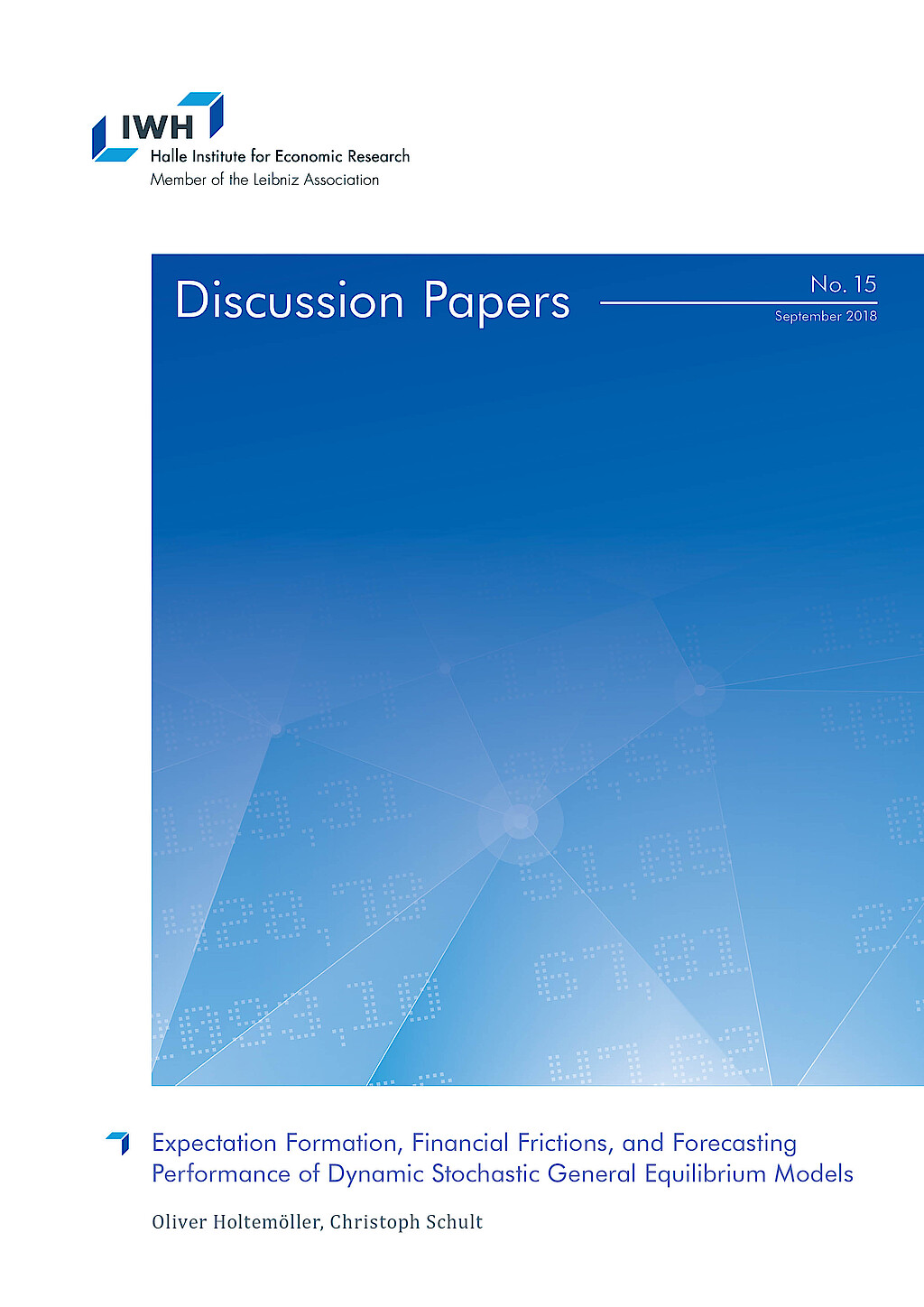
Expectation Formation, Financial Frictions, and Forecasting Performance of Dynamic Stochastic General Equilibrium Models
In this paper, we document the forecasting performance of estimated basic dynamic stochastic general equilibrium (DSGE) models and compare this to extended versions which consider alternative expectation formation assumptions and financial frictions. We also show how standard model features, such as price and wage rigidities, contribute to forecasting performance. It turns out that neither alternative expectation formation behaviour nor financial frictions can systematically increase the forecasting performance of basic DSGE models. Financial frictions improve forecasts only during periods of financial crises. However, traditional price and wage rigidities systematically help to increase the forecasting performance.





